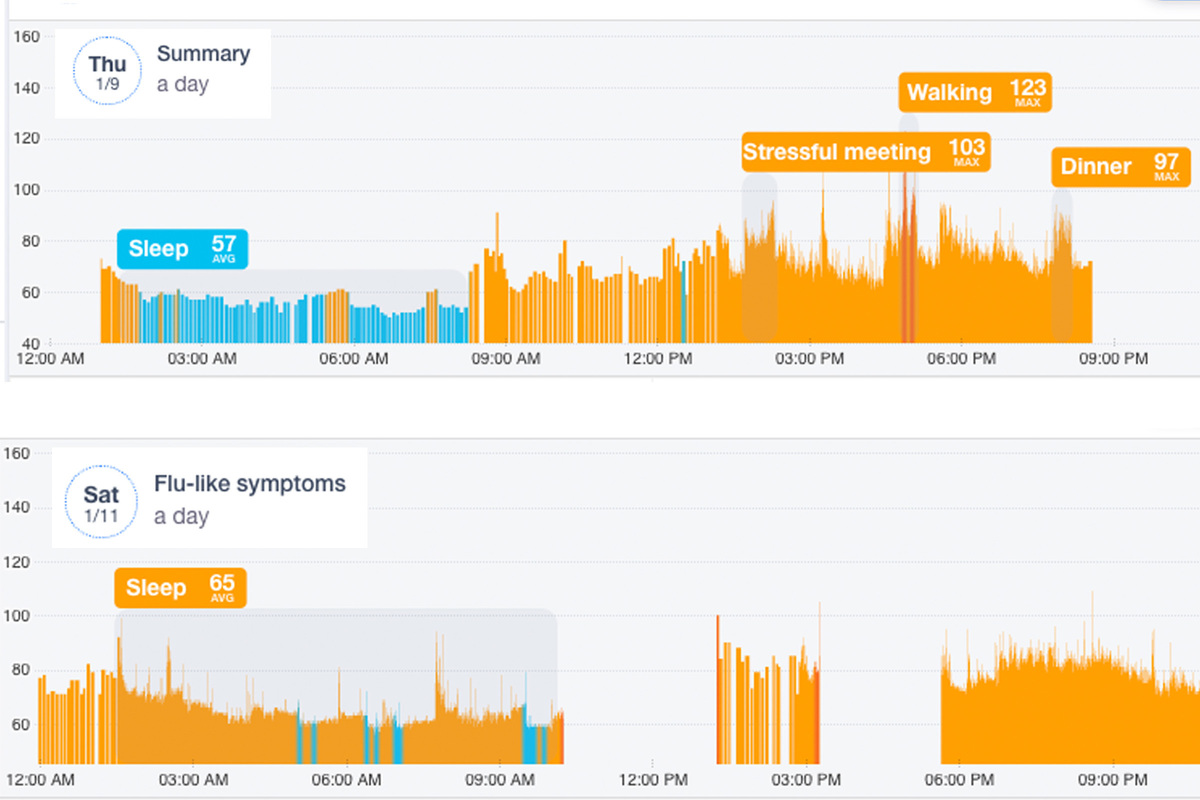The Apple Watch can’t take your temperature. Neither can an WearOS smartwatch or the Fitbit Versa. During a time when more people than ever are concerned about having a fever, it’s a shortcoming that seems particularly glaring.
It’s not your watch’s fault, however. Skin readings, particularly on the wrist, are less than ideal for monitoring body temperature due to stress, sweat, and other external oscillating factors. For now, any attempts to do so would be inaccurate at best. If you’re worried about whether a lingering cough could be caused by a coronavirus infection, you’ll need to track your temperature the good old fashioned way and then input your results manually in Apple Health or Google Fit for now. Then you can consult your physician if you see an upward trend.
But that doesn’t mean wearable devices are powerless to help in the fight against COVID-19. Just like your smartwatch’s heart-rate monitor can alert you to possible warning signs of atrial fibrillation or sleep apnea, it can also spot warning signs that might signal your body is fighting a flu-like infection—if you know where to look.
Monitor your heart rate
App maker Cardiogram pushed an update to its Apple Watch and WearOS apps last week that adds a new stat that shows average beats per minute during sleep. As it turns out, tracking fluctuations in your heart rate during sleep could signal that your body is fighting a viral infection like COVID-19.
 Cardiogram
CardiogramBy tracking your sleeping heart rate, Cardiogram might be able to alert you to an imminent illness.
Cardiogram co-founder Johnson Hsieh discovered the correlation after tracking his BPM during a bout with the seasonal flu in January. He noticed that his normal sleeping heart rate was about 10 beats per minute higher while his body was fighting the virus and returned to normal as his sickness subsided. The higher BPM was also evident during other parts of the day, but sleep is where it’s easier to spot.
It’s due to vasodilation, which is a fancy medical term for the expansion of the blood vessels during inflammation. As blood vessels expand, signals are sent to your brain to increase your heart rate and provide additional blood supply to inflamed regions.
“A pretty clear signal in your heart rate when you have symptoms that would otherwise be measured exclusively by a thermometer,” said Harish Kilaru, head of product at Cardiogram. “When your body is fighting an infection, both your sleeping BPM and your resting BPM are higher.”
Since Cardiogram is still studying how BPM correlates to viruses and other illnesses, it won’t be part of its UCSF partnership studies users can opt into, nor will it actively alert you to these types of fluctuations in your sleeping BPM. As Kilaru explained, other factors (such as consuming alcohol) can also lead to an increase in resting BPM, so it’s not an exact science just yet. While Cardiogram still recommends taking your temperature…
https://www.macworld.com/article/3533344/apple-google-android-galaxy-fitbit-smartwatch-body-temperature-flu-symptoms.html#tk.rss_all
















